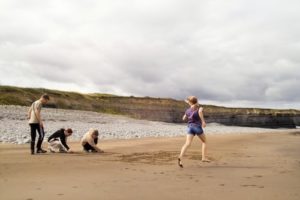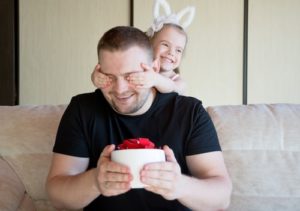One of the defining characteristics of a pandemic, such as COVID-19, is the incredible amount of uncertainty that it creates. For example, as I am writing this today the plan for my kids’ return to school in about two weeks is still up in the air.

As a child and teen therapist, I’m seeing an increase in anxiety due to COVID. I attribute much of this to isolation, but more and more it is due to the uncertainties that we are all experiencing.
I think that the only thing that you CAN predict and expect is that you may not be able to predict what comes next. In clinical terms, this could be described as living with a trigger that is not going away. So that begs the question: how do you deal with stress and the unknown?
First and foremost, accepting the reality that you are in can go a long way towards developing coping skills and resiliency. If you are able to accept that things are up in the air and that is the new (hopefully temporary) reality, then it may be possible to find ways to cope. When a person struggles to accept reality as it truly is then they are likely going to find their symptoms are worse.

By the way, accepting reality for what it is fits into living your life in a mindful way. I describe how I incorporate mindfulness into my practice on my website – check it out! This short video is another way of discussing how mindfulness works when you are triggered.
I don’t pretend that anything I suggest here is going to revolutionize your life and make you feel happy. In fact, if you are not happy right now there are likely some very good reasons for your feelings. Again, accepting reality is an important step towards feeling better.
Here are some of the best ways to cope:
Educate yourself on facts and try to avoid believing rumours
If you are not sure of something regarding your children and school, reach out to the principal of your school or your local superintendent.
If you are in York Region, the YRDSB website has their current Return To School plan online. If you have concerns about your health and what to do if you are not feeling well, ask your doctor or your local public health department. By getting the facts you are helping yourself live in your reality. It may be better than you expect!
Remember to exercise
Overall health is a combination of your physical/biological, mental, and social health. When a person feels anxiety they can get a stomach ache. This stomach ache can then make it harder to exercise, even when exercise might be the best thing for it.
When we don’t feel good social situations become harder to endure. Similarly, when a person gets a stomach ache it can trigger a change in their mood. Physical symptoms can create mental health challenges just as mental health problems can trigger physical problems.

Caring for the mind involves caring for the body. When the body feels better then your mental health likely will improve. If you suffer from panic attacks, exercise might help control them.
Communicate visually
Because of the isolation that we are all having to endure it has become less common to actually see each other.
While we are in stage 3 in York Region right now, we still have to wear masks when in common areas. Because communication is mainly non-verbal, wearing a mask means we lose some of the message. Therefore, find ways to communicate where you can see each other’s face.

Use Zoom, FaceTime, or whichever other technology you prefer. Meet at somebody’s house outdoors and space yourself so that masks are not necessary.
The more people can actually see and talk to each other, the greater the positive impact on their overall mood.
Get outside
Before COVID it can be argued that we spend too much time indoors. Because of COVID this has gotten worse.
One of the best ways to deal with uncertainty is to reconnect with the natural world. If there is a park near you go for a walk. Sit on a bench. If you have a backyard, use it! If there is an area with trees and is safe, take a visit! Anxiety and depression can be lowered by more time out of the house and in nature.
Getting out of the house and feeling the air on your face will likely lift your spirits. Give it a try!
Get kids outside
If you have a child or teen who is into video games, they are likely using it a lot more than pre-COVID. Because other social connections were cut-off, PlayStation and Xbox have become an important communication tool for gamers.
The problem is that communicating about a video game means that talking about other things, such as teachers, sports, crushes, movies, and other interests get pushed aside.

Find ways to get your child to disconnect and go outside. Suggestions include family walks, meeting friends (allowed now!!!), and outdoor sports. If they like nature, find a trail nearby to take them to.
There is no magic formula for this – just keep in mind the more they can do offline likely the happier they will be….and you as well ☺
Treat yourself and your family
Compared to the Spanish Flu pandemic in the early 20th century, we are lucky to have many more luxuries and ways to cope.

Technology allows us to stay connected in ways that were not even considered a century ago. A treat doesn’t have to be expensive nor does it have to be time consuming.
For some, a treat could be a nice warm bath. Others might find that time with a book is a reward. If you normally do a family trip overseas, maybe find a local option. Maybe your family will find a reward could be going for ice cream. Whatever works for you is what is best!
I’d love to hear from you and know if this was helpful. My email is kevin@hhcw.ca and my phone number is 416.613.1259. Stay safe!!!
